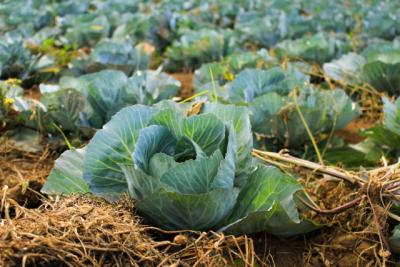Grow, Share or Buy?

Urban gardening is increasingly popular in various countries across the globe but this practice means something quite different depending on the context, as highlighted by Community Economies Research Network member Dr Lucie Sovová in her PhD thesis, Grow, Share or Buy: Understanding the Diverse Economies of Urban Gardeners?, which she recently defended at Wageninen University, Netherlands.
Sovová pushes us to diversify our understanding of urban gardening along two axes: on the one hand, she shows the diversity of what happens in the urban gardens themselves, and on the other, she highlights how the practices differ, and how they are valued based on the cultural context.
She notes that many urban gardens in western Europe hide edible crops in the backyard, and keep the front of the house for flowers and other non-edibles, and she says, “I would like to see urban gardeners having cabbages in their front gardens, and being proud of them!”
Sovová was particularly interested in urban gardens as sources of food and in her study of urban gardening in Brno, Czechia she found that during the four months of data collection, spread over the four seasons, urban gardeners produced on average 107kg of fruits and vegetables (around 31 per cent of their household consumption) with some gardeners producing up to 400kg of fruits and vegetables (around 70 per cent of their household consumption).
The information was generated through interviews and food-logs (a diary that participants kept of their food provisioning activities), with data analysed in terms of the diverse economy matrix developed by J.K. Gibson-Graham and especially the diversity of transactions used to acquire fruits and vegetables.
Alongside non-market sources such as growing fruits and vegetables in urban gardens and foraging, the participants in the study used alternative market sources such as farmers markets, farmers shops and direct sales, and market sources such as supermarkets.
Self-provisioning by growing fruits and vegetables in urban gardens is often regarded as ‘traditional’ or ‘backwards’ in Central and Eastern Europe, and thus seen a residue of poverty or cultures that will vanish once the market is fully ‘developed;’ however, Sovová highlights how self-provisioning is part of the mix of diverse market transactions used to acquire food.
As well, the research highlights how urban gardening is actively prioritised by gardeners for reasons such as leisure, health, taste, sociality or ethics, and Sovová even found that some of the most productive gardeners were not driven by goal of sustainably producing food but were more interested in enjoying gardening and improving their gardening skills.
Sovová says “virtuous motivations should not be overrated, mundane impulses such as ‘having fun’ can lead to the successful integration of provisioning practices into people’s lives.”
By investigating the inner workings of urban gardening practices and putting them in the spotlight, Sovová makes a broader political argument that counters the stereotype of Central and Eastern Europe as having undeveloped economies that need to catch up with the West.
Her research shows how, rather than a so-called backwards coping strategy, self-provisioning through urban gardening is part of a vibrant multiplicity of economic practices and one with the potential to strengthen economic interrelations and contribute to a more sustainable food system.
Lucie Sovová was was awarded her doctoral degree Cum Laude.
Christina Jerne and Jenny Cameron
Photo by Arnaldo Aldana on Unsplash
